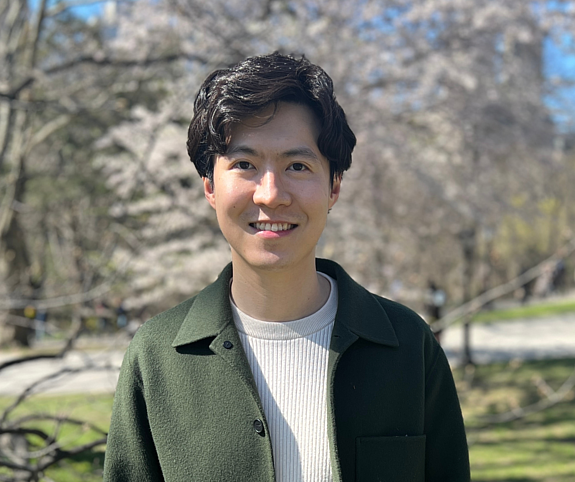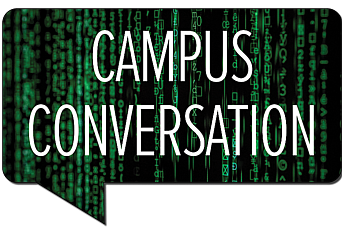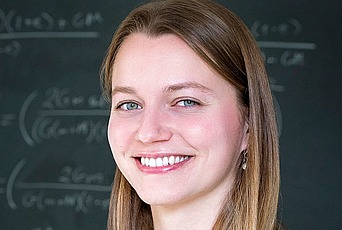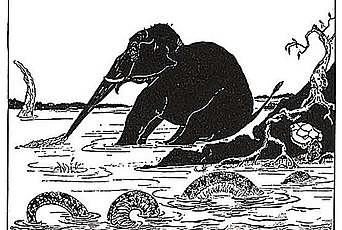Weishun Zhong, Member in the School of Natural Sciences, uses tools from statistical physics to study the brain and AI. "Although these two might appear very different at first glance," he states, "when zoomed out and abstracted away, they are both just networks of basic units called neurons." Statistical physics provides a way to understand how collective phenomena emerge from basic constituents, and Zhong is curious to see if there is a physics-based description of complex emergent phenomena like learning and memory in neural networks. Occasionally, he also delves into studying physical systems that exhibit intelligence-like behavior without any neurons. Zhong comes to IAS from MIT, where he gained his Ph.D. from the Department of Physics in 2023.
How did you first become involved in statistical physics, neuroscience, and AI?
When I began college, I didn’t know I was going to study physics, and I remember disliking all the different ideal gas laws that I had to memorize in order to pass the exams. Later, a statistical physics class changed all that. The first time I saw how thermodynamics can be derived from something more fundamental called statistical mechanics, I was deeply shocked. Somehow the wild dances of gazillion gas molecules got tamed into a single equation of state, with all the different ideal gas laws being merely shadows of it. That was not something one can easily forget, and ever since, I have dreamt of searching for simple rules that can govern complex systems.
My fascination with neuroscience and AI came later when I read The Astonishing Hypothesis by the famous physicist-turned-biologist Francis Crick. His hypothesis that, under the laws of physics, the mindless electrical activities of individual neurons and cells somehow conspire together to form the mind itself, reminds me of how the chaotic movements of gas molecules collectively give rise to macroscopic concepts like temperature and pressure. Since then, I have wondered whether there exists a version of “thermodynamics” for the emergent intelligence we see in the brain and AI.
What currently excites you about your field of research?
Generally speaking, I am excited about exploring facets of intelligence through neural networks and models of statistical physics. Specifically, I am interested in understanding structures and functions observed in natural intelligence (e.g., the brain). Along this journey, I'm also curious to identify any parallels within artificial intelligence, hoping such analogies might provide insights into the phenomena of intelligence itself.

What do you enjoy most about being a researcher?
For me, I think it is the feeling of getting a front-row seat on an exciting safari of scientific discovery. Since I was a kid, I have enjoyed reading science fiction. Being a researcher feels like living inside one of those stories, only this time it is actually real and written by the best scientists around the world.
When you aren’t researching natural and artificial intelligence, how do you like to spend your free time?
I enjoy rock-climbing, hiking, and reading about history.
What would people be most surprised to learn about being a statistical physicist?
I think people would be surprised by the broad range of topics that a statistical physicist can study. From electrons to neurons, from proteins to ecosystems, from financial markets to political voting, statistical physics can be applied to almost any system with many degrees of freedom. Some of the subject areas may appear utterly distinct from one another, yet somehow beneath the surface of apparent disparity there is a common language to be spoken of. Furthermore, models that describe completely different things can secretly be the same when viewed through the lens of statistical physics, because there is a sense of universality underneath them.
What is the best piece of advice you have received, or do you have any advice for aspiring scholars within your field?
My Ph.D. advisor once told me, “The best advice I ever received from my advisor is do not listen to your advisor, and now this piece of advice passes on to you.” At times when I want to forge my own path, I often think of this advice, and it has given me an incredible amount of strength. Although, admittedly, by following it I probably have disobeyed the advice itself.



